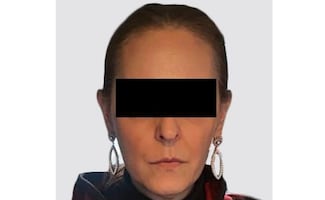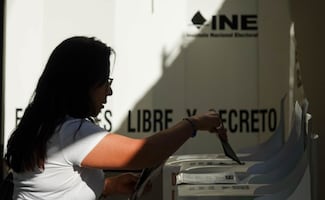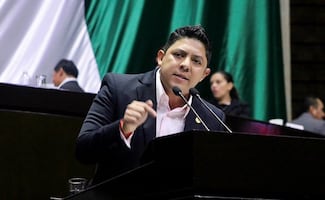Más Información

Secretaría Anticorrupción sanciona a dos empresas por buscar contratos con información falsa; imponen multa de miles de pesos

PRI en el Senado propone prohibir entrega de doctorados honoris causa sin rigor académico; pide honrar méritos comprobables

Dictan prisión preventiva a exasesora de García Luna por delincuencia organizada; falta definir su vinculación a proceso

Hombre muere arrollado por el Tren Maya en Yucatán; elementos de la Guardia Nacional resguardaron el lugar
Before he is extradited to Mexico, former Chihuahua governor César Duarte Jázquez already has new accusations against him in national territory.
By early 2020, Mexico's National Intelligence Unit (UIF) filed two complaints against Duarte at Mexico's Attorney General's Office (FGR) over money laundering stemmed from a funds diversion worth MXN $96.6 million.
Federal sources confirmed that both complaints stemmed from information sent by the Chihuahua Attorney General's Office to the UIF regarding the diversion done during the administration of the former governor in the state and which affected at least three local agencies.
According to the investigations, the former officer used shell companies and frontmen to divert the state's public funds to bank accounts linked to him.
Recommended:
The UIF detected the existence of a money-laundering network in a livestock association that imported animals from New Zealand to allegedly support this sector in Chihuahua.
The investigations show that the association is also linked to the former Nayarit Governor Roberto Sandoval Castañeda.
The second complaint is about the case of a credit union financed by shell companies that extracted Chihuahua's government funds in order to benefit Duarte Jáquez.
Therefore, since 2019, the UIF has frozen the former governor's bank accounts as well as those of people that have been identified as frontmen that worked through shell companies to divert the funds.
The bank accounts frozen by the UIF hold over MXN $5 billion, while the FGR continues with the two investigations for operations with illegally-sourced funds against the César Duarte .
A total of 15 arrest warrants have been issued against Duarte Jáquez stemmed from the investigation on embezzlement, carried out by Chihuahua's Attorney General's Office.
The investigations that were sent to the UIF to track the money laundering of the state resources derived in the opening of 40 investigation files against approximately 30 people who are linked to the former governor's network.
Recommended:
The state government's arrest warrants, over graft and conspiracy, are the basis with which Mexico's government requested Duarte Jáquez's extradition, who was arrested last Wednesday in Miami, Florida.
If the FGR prosecutes the investigations on money laundering stemmed from the UIF's complaints and obtains arrest warrants over those crimes, according to the extradition agreement with the U.S., Mexico's government would have to submit to U.S. Consideration the possibility to add these charges to the extradition warrant.
If the warrants are issued after Duarte Jáquez is extradited, the federal government would have to request authorization from the United States to bid him over to trial for these crimes.
The former governor also has a federal arrest warrant against him for electoral fraud derived from funds diversion to finance PRI party campaigns in Chihuahua during his administration.
The strategy that was used for that fraud that was worth MXN $76 million; it consisted of deducing between 5% and 10% of the state workers' wages to transfer it to a concentrating account of the state Finance Ministry.
A cheque was issued to the agency, which was endorsed to a company to withdraw cash money and deliver it to the ranks of the PRI in Chihuahua.
Duarte's first hearing in Florida
During the first hearing at a U.S. court following César Duarte’s arrest held in Miami, federal judge Lauren Louis said it is a case of an international extradition request and that the former Chihuahua governor will remain in custody during the process. Moreover, the judge proposed to schedule the full extradition hearing for July 23, 24, or 27.
In a virtual hearing, that took place at Miami’s South District Judge, Duarte had a cellphone in which he heard the translation of what the judge was telling him.
The former governor was handcuffed and was wearing a beige and gray uniform; he was not wearing a mask.
The judge read the charges against him, described the crimes, and told him there is a warrant to take him to Mexico.
mp
Noticias según tus intereses
[Publicidad]
[Publicidad]









